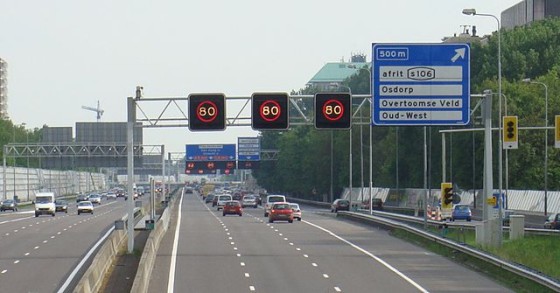Rush hour pay-per-drive tax would benefit economy: report
 The introduction of a rush hour motoring tax, in which motorists were charged for every kilometre they drive, would help boost prosperity, according to a new report from two government agencies.
The introduction of a rush hour motoring tax, in which motorists were charged for every kilometre they drive, would help boost prosperity, according to a new report from two government agencies.
The macro-economic forecasting agency CPB and the environmental assessment agency PBL say a rush hour tax of 11 cents per kilometre would make money for the treasury at times of both low and high economic growth.
However, the report notes, it would be difficult to enforce and confusing for motorists.
Another variant on road pricing, involving a five cent levy on every kilometre travelled on the main roads in congested parts of the country, would only be beneficial at times of economic growth, the researchers said.
A third variation – a seven cent per kilometre charge on all roads – would reduce jams and pollution as well as improving road safety. However, it would also reduce car usage by 15% which will hit other sources of car-based government income.
Plans by previous governments to introduce road pricing in the Netherlands have come to nothing and transport minister Wilma Mansveld is also opposed to the idea.
However, European transport commissioner Violeta Bulc said earlier this year she was looking into the option of introducing some form of road pricing for private cars in Europe as a whole.
Thank you for donating to DutchNews.nl.
We could not provide the Dutch News service, and keep it free of charge, without the generous support of our readers. Your donations allow us to report on issues you tell us matter, and provide you with a summary of the most important Dutch news each day.
Make a donation